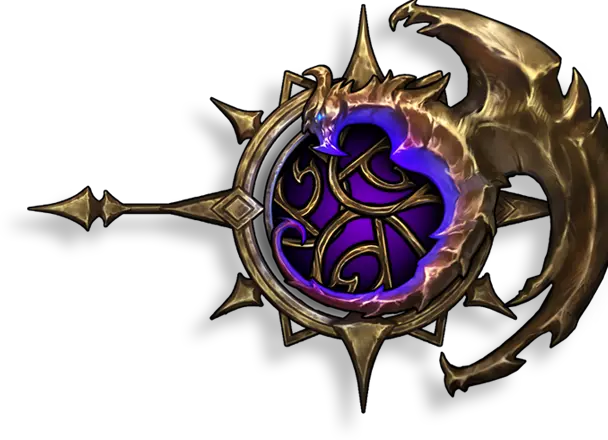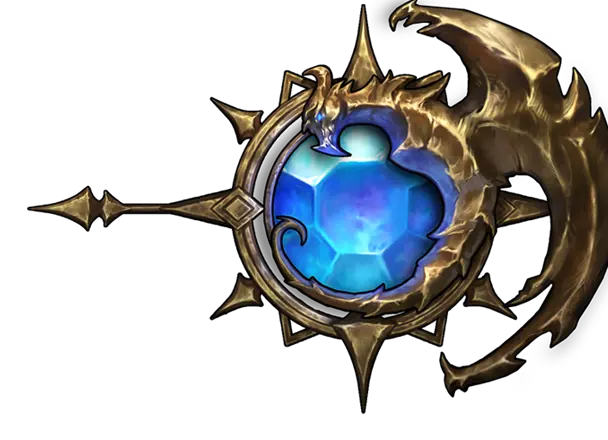Unleash the Power Within: Conquer the World of Deck-Building Games
Evolution of Deck-Building Games
Deck-building games have undergone significant transformation since their inception, continuously evolving to captivate players with innovative mechanics and engaging gameplay.
Inception of Deck-Building Genre
The deck-building genre in board games was pioneered by the release of Dominion in 2008. Dominion set the foundation for future games in this genre by introducing a unique mechanism where players construct their decks during the game. In Dominion, players start with a small deck of cards and gradually acquire new, more powerful cards to enhance their decks.
This mechanism of deck construction during gameplay was a novel concept at the time, distinguishing Dominion from traditional collectible card games where players build their decks prior to the game. Dominion’s success paved the way for a plethora of deck-building games, each adding their own twists to the genre.
Growth and Innovation
Since the inception of Dominion, the genre of deck-building games has grown immensely. Games like Ascension, Thunderstone, and Legendary have built upon the foundations laid by Dominion, introducing unique mechanics and innovations. According to Japanime Games, these games have added new layers of strategy and complexity to the deck-building genre.
Deck-building games have evolved to include various mechanics that enhance gameplay. One such innovation is the concept of “thinning” decks, where players can remove less useful cards from their decks to make them more powerful overall. This allows players to improve their chances of drawing powerful cards during the game.
Another notable innovation is the introduction of a shared offer row, seen in games like Fort. In this mechanic, players can purchase cards from a common pool, with unused cards becoming available for other players to buy (Tabletop Games Blog). This creates a dynamic where players must strategize not only about which cards to acquire but also about denying cards to their opponents.
| Game Title | Release Year | Unique Mechanic |
|---|---|---|
| Dominion | 2008 | Deck construction during gameplay |
| Ascension | 2010 | Fast-paced gameplay with constant deck optimization |
| Thunderstone | 2009 | Integration of deck-building with dungeon-crawling theme |
| Legendary | 2012 | Cooperative gameplay with players working together to defeat villains |
Deck-building games continue to innovate and evolve, offering players new and exciting ways to engage with the genre. The growth and innovation within this genre demonstrate its enduring appeal and the creative potential it holds for future game designers.
Community Impact
Deck-building games have significantly influenced the gaming community, creating vibrant and dynamic spaces both in-person and online. Let’s explore how these games have fostered community and leveraged digital platforms to enhance the gaming experience.
Forming Gaming Communities
The rise of deck-building games has led to the formation of communities worldwide. Players come together to form alliances, strategize against opponents, and build lasting bonds beyond the gaming table (Japanime Games). These communities often organize local meetups, tournaments, and events, providing an opportunity for individuals to share their passion and improve their skills.
In these communities, we see a variety of player interactions:
- Competitive Play: Tournaments and competitive events where players test their skills against others.
- Casual Play: Friendly gatherings where the focus is on enjoyment and socializing, rather than competition.
- Strategy Sessions: Workshops or informal meetups where players discuss strategies, deck optimization, and game mechanics.
These interactions help to enrich the gaming experience, making it more than just a solitary activity. It becomes a social event, fostering camaraderie and mutual growth.
Online Platforms
Digital platforms have revolutionized the gaming experience for deck-building game fans. These platforms offer features like remote play, solo play, improved graphics, and online tournaments, attracting players globally to games like Tanto Cuore and Heart of Crown (Japanime Games).
Here are some key features of online platforms that enhance the deck-building game experience:
| Feature | Description |
|---|---|
| Remote Play | Allows players to connect and play with friends or strangers from anywhere in the world. |
| Solo Play | Provides options for individuals to practice or enjoy the game without needing other players. |
| Improved Graphics | Enhances the visual appeal of the game, making it more engaging and immersive. |
| Online Tournaments | Offers a platform for competitive play, with global rankings and prizes. |
By leveraging these digital advancements, we can engage with the deck-building community in new and exciting ways. Whether it’s through participating in a global tournament or enjoying a casual game night with friends across the globe, online platforms provide flexibility and accessibility that traditional in-person gaming cannot match.
Through the combination of physical meetups and digital interactions, the deck-building game community continues to grow and thrive, offering a rich and varied experience for all its members.
Gameplay Mechanics
In the realm of deck-building games, mastering the gameplay mechanics is crucial for achieving victory. Two fundamental aspects of these mechanics are deck optimization and understanding the various card types.
Deck Optimization
Deck optimization is a critical strategy in deck-building games. The goal is to refine the deck by adding powerful cards and removing less useful ones. This process enhances the deck’s efficiency and effectiveness (Tabletop Games Blog).
Key Strategies for Deck Optimization:
- Thinning Decks: Removing weaker cards from the deck to increase the probability of drawing stronger, more impactful cards.
- Balancing Card Types: Ensuring a balanced mix of different card types to maintain a versatile and adaptive deck.
- Synergy and Combos: Selecting cards that work well together to create powerful combinations and maximize their effects.
| Strategy | Description |
|---|---|
| Thinning Decks | Removing less useful cards to streamline the deck. |
| Balancing Card Types | Maintaining a mix of various card types for versatility. |
| Synergy and Combos | Choosing cards that enhance each other’s effects. |
Card Types
Understanding the different types of cards available in deck-building games is essential for creating a well-rounded deck. These cards serve various purposes, from offensive actions to defensive maneuvers, and even support roles.
Common Card Types:
- Attack Cards: Used to deal damage to opponents or disrupt their strategies.
- Defense Cards: Provide protection or negate the effects of opponents’ actions.
- Resource Cards: Generate resources like magic or energy, which are necessary for playing other cards.
- Utility Cards: Offer special abilities or effects that can change the course of the game.
| Card Type | Function |
|---|---|
| Attack Cards | Deal damage or disrupt opponents. |
| Defense Cards | Provide protection or negate effects. |
| Resource Cards | Generate necessary resources for gameplay. |
| Utility Cards | Offer special abilities or strategic advantages. |
By mastering deck optimization and understanding the diverse card types, we can enhance our strategies and become formidable players in the world of deck-building games. Adapting these tactics to our gameplay will allow us to unleash the full potential of our decks and conquer any challenge that comes our way.
Innovations in Deck-Building
Deck-building games have continued to evolve, introducing new mechanics and features that enhance gameplay and strategy. Two significant innovations are the introduction of immediate card effects and the implementation of a shared offer row.
Immediate Card Effects
One of the recent innovations in deck-building games is the concept of immediate card effects. Traditional deck-building mechanics typically require players to purchase cards, which then go into their discard pile and eventually into their deck. However, some modern games like Shards of Infinity have introduced a twist: players can play cards immediately after purchasing them, but these cards are then removed from the game (Tabletop Games Blog).
This mechanic allows players to gain immediate benefits without adding to their deck, offering a strategic advantage. It also adds a layer of decision-making, as players must weigh the short-term benefits of immediate effects against the long-term strategy of building a powerful deck.
| Game | Immediate Card Effect |
|---|---|
| Shards of Infinity | Play immediately, then remove from game |
Shared Offer Row
Another innovative mechanic in deck-building games is the shared offer row. Traditionally, players draw from a central deck or individual pools of cards. However, games like Fort have introduced a shared offer row where cards are available for all players to purchase. Unused cards become available for other players, creating a dynamic interaction between players (Tabletop Games Blog).
In Fort, for example, cards act as “children” that players invite over to play. If a player chooses not to “invite” a card, it remains available for others, adding a unique layer of strategy and competition. This mechanic encourages players to think ahead and consider the impact of their choices on their opponents.
| Game | Shared Offer Row Mechanic |
|---|---|
| Fort | Cards as “children” available to all players |
By incorporating immediate card effects and shared offer rows, modern deck-building games are pushing the boundaries of traditional gameplay, providing new and exciting ways for us to engage with and strategize in the world of deck-building.
Modern Trends
Deck-building games have evolved significantly over recent years, embracing modern trends that enhance the gaming experience and broaden their appeal. Two key trends shaping the future of deck-building games are narrative integration and digital advancements.
Narrative Integration
Narrative integration is becoming increasingly prevalent in deck-building games. By embedding compelling storylines and character development into gameplay, these games offer a richer, more immersive experience. This trend blends elements of role-playing games and city-building games, providing a multifaceted approach to deck-building (Japanime Games).
Players are not just strategizing over cards, but also engaging with a narrative that unfolds as they progress. This adds a layer of depth to the game and makes each playthrough unique. Games like “Tanto Cuore” and “Heart of Crown” are notable examples that effectively combine deck-building mechanics with intricate narratives.
| Game Title | Narrative Complexity | Player Engagement |
|---|---|---|
| Tanto Cuore | High | High |
| Heart of Crown | Medium | High |
Digital Advancements
The digital transformation of deck-building games is another significant trend. Digital platforms revolutionize the gaming experience, offering features like remote play, solo play, improved graphics, and online tournaments. These advancements attract players globally and foster a sense of community among enthusiasts (Japanime Games).
Digital deck-building games provide convenience and accessibility, allowing players to engage in their favorite games from anywhere in the world. The rise of online platforms has also led to the development of sophisticated game features, enhancing the strategic depth and visual appeal of these games.
| Digital Feature | Benefit |
|---|---|
| Remote Play | Play with friends globally |
| Solo Play | Practice and improve skills |
| Improved Graphics | Enhanced visual experience |
| Online Tournaments | Competitive play and community-building |
These modern trends are reshaping the landscape of deck-building games, making them more engaging and accessible for players. By integrating narratives and leveraging digital advancements, deck-building games continue to evolve, offering exciting new experiences for strategic, creative, and competitive players.
Unique Game Features
In the world of deck-building games, unique features and mechanics often define the experience and strategy. Among these features, two stand out: thinning decks strategy and power-up mechanics.
Thinning Decks Strategy
Thinning decks by removing less useful cards has become a common and strategic facet of deck-building games. This mechanic allows players to enhance their decks’ overall power by shedding weaker cards during the game. By doing so, players can draw their stronger cards more frequently, increasing their chances of winning.
Benefits of Thinning Decks
- Increased Efficiency: By removing weaker cards, players can cycle through their decks more quickly, drawing powerful cards more often.
- Strategic Depth: Deciding which cards to remove adds an extra layer of strategy, as players must balance short-term gains against long-term efficiency.
- Game Balance: Thinning decks helps maintain a balanced game state, preventing any single player from becoming too dominant due to a bloated, inefficient deck.
| Strategy | Benefit |
|---|---|
| Removing Weaker Cards | Increased draw of powerful cards |
| Strategic Decision-Making | Balancing short-term and long-term gains |
| Maintaining Game Balance | Prevents inefficient deck bloat |
Power-Up Mechanics
Power-up mechanics introduce a dynamic element to deck-building games, allowing players to enhance their cards’ abilities during gameplay. This can involve adding new abilities, increasing the power of existing cards, or even transforming cards into entirely new ones. Mystic Vale, for example, innovatively ensures that decks never get bigger, but cards become more powerful, creating a race to secure the most points (Tabletop Games Blog).
Examples of Power-Up Mechanics
- Card Augmentation: Adding new abilities or effects to existing cards.
- Transformation: Evolving cards into more powerful versions.
- Point Accumulation: Enhancing cards to gain more points and secure victory.
| Game | Power-Up Mechanic | Description |
|---|---|---|
| Mystic Vale | Card Augmentation | Cards become more powerful without increasing deck size |
| Dominion | Card Transformation | Cards evolve into stronger versions |
| Fort | Point Accumulation | Enhancing cards to gain more points |
By integrating these unique features, deck-building games offer players a rich strategic experience. Thinning decks and power-up mechanics not only add depth to gameplay but also ensure that each game is a unique and engaging challenge.
Welcome to Legends of Elysium (LOE), a Free-To-Play game that fuses collectible card gameplay with board game strategy. Set in a mesmerizing fantasy world, players can choose unique races and classes to tailor their heroes and formulate clever strategies. Engineered by DA Games, the game features awe-inspiring graphics and engaging gameplay experiences within the Elysium universe. Enjoy various modes, including solo quests, multiplayer leagues, Battlefield, and eSports tournaments, allowing players to both entertain themselves and monetize their gaming journey. [CTA_BUTTON_PLAY]







